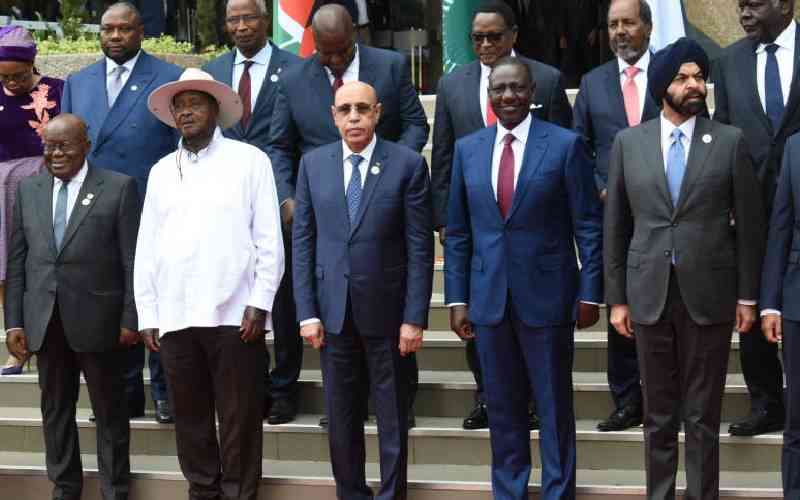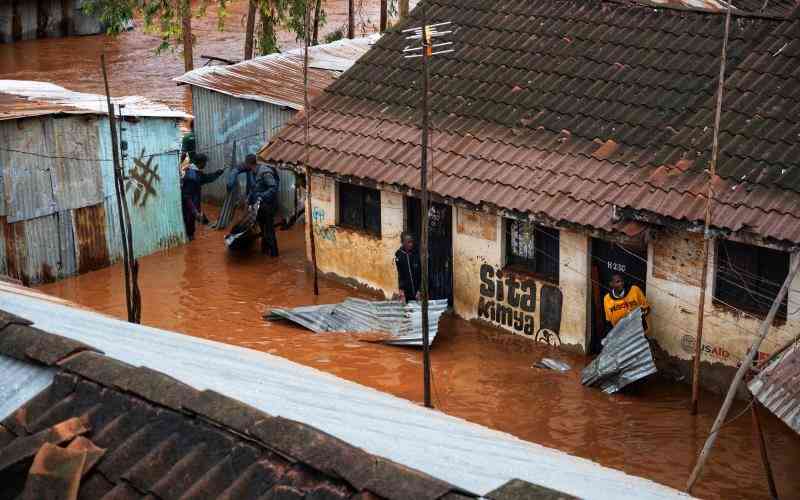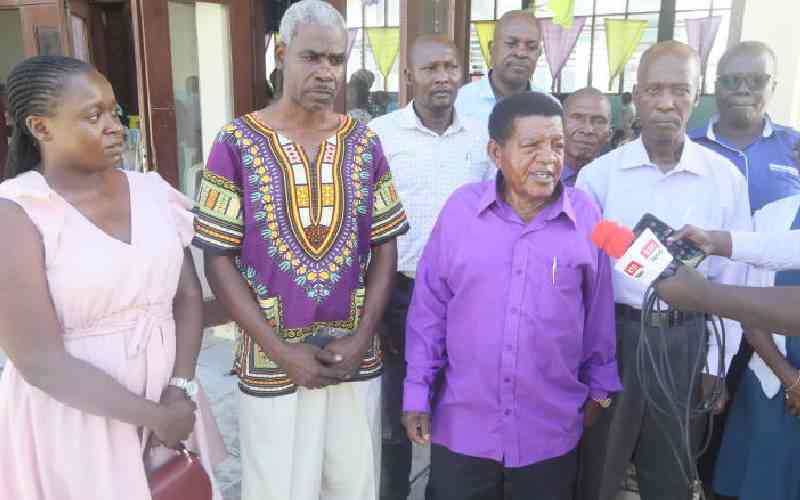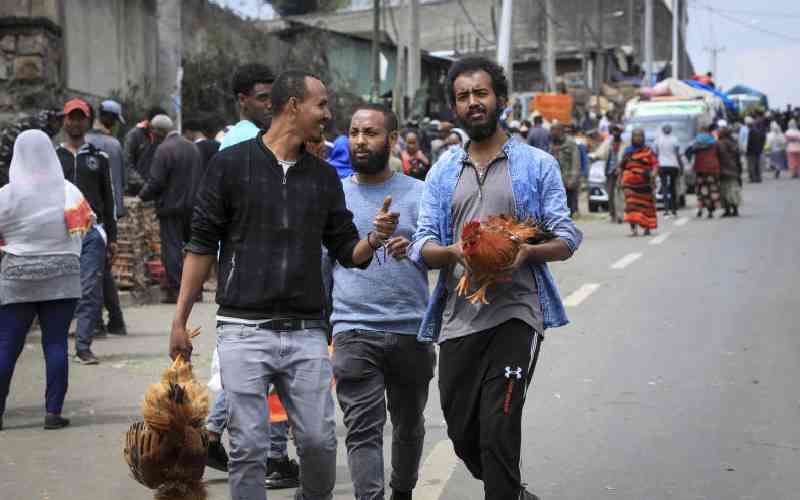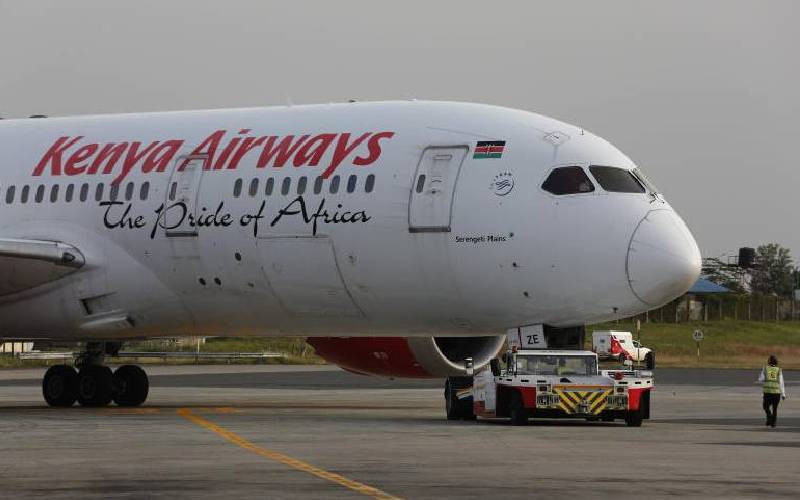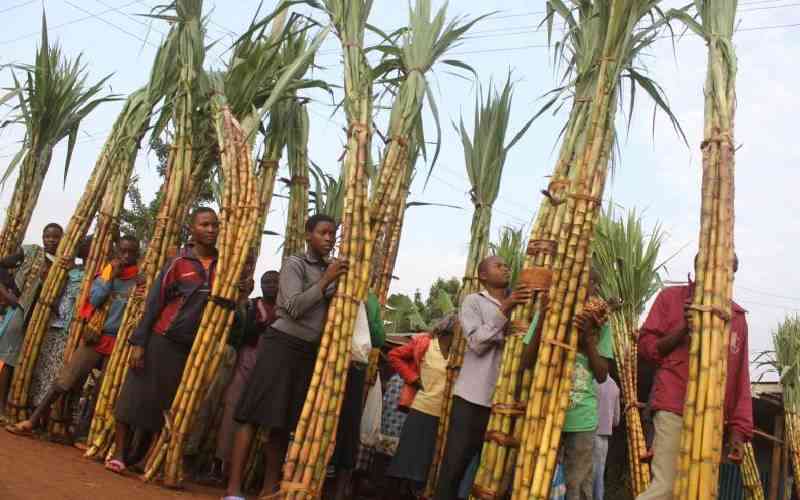By Kipchumba Some
Barely a year after a top UN human rights official accused the police of unlawfully killing thousands of youth on suspicion of being criminals, the practice appears to be continuing unabated.
Investigations by The Standard on Saturday indicate that hundreds of youth continue to be killed and disappear in the hands of police.
And for the first time, the police force has accepted that some of its officers could be engaged in such acts of criminality.
The Kenya National Commission on Human Rights, which released a report in 2008 titled, A Cry of Blood, in which it claimed police had unlawfully killed more than 1,500 youth, says it continues to receive complaints from the public of people dying or disappearing in the hands of the police.
The commission said it had received more than 200 complaints of unlawful killing or disappearance at the hands of police since it released its report.
"The issue is not as pronounced as it was before, but it is still going on," said KNCHR’s Hassan Omar. "We have investigated and forwarded a number of them to the Attorney General for action," he added.
Unscrupulous Officers
Police spokesman Eric Kiraithe said: "There is no point in denying that people are disappearing and it could be some of our unscrupulous officers. But no, we have received few such complaints," he said.
On the afternoon of Sunday March 21, at three o’clock, three white Toyota saloon cars raced along Kihara Road, Karuri division, Gachie area, and aimed directly at a group of young men chatting by the roadside.
The car in front made as if to knock some bystanders before screeching to a halt, followed by the other two behind it. As the dust settled, the doors of the three cars were violently opened and out stepped about eight people, guns raised up in the air. One, apparently the leader of the group, had a pistol while the rest had G3 guns, similar to those police officers carry. Anxiety and fear gripped the small shopping centre perched on a hill.
People react differently to fear. Some freeze, others feign bravery yet others simply take to their feet. One of those who fled was Joseph Njenga, 16.
The Form Two student at Rehoboth School stepped back from the officers who had menacingly stopped by his feet. On the third step back, the man with the pistol shot towards him, grabbed him by the neck and pulled him down, kicked him in the sides, and cocked his gun and pointed it at his head.
"He called him a criminal, a Mungiki suspect," recalled a trader at the centre who witnessed the incident. "We were all terrified and Njenga was sobbing on the ground."
Collins Tyson, a colleague of Njenga at Rehoboth, was one of those who froze at the sight of guns raised in the air. They had just met with his friend and were about to part when the strange men struck.
"I think they picked on Njenga when he tried to move back. I could also have run, but I was so afraid that fear immobilised me. I remained rooted at that spot for a long while after they had gone."
On the other side of the road pastor John Njoroge of the Truth Seekers Chapel in Gachie wondered what was going on. It must be plainclothes policemen arresting suspects, he thought as he walked on. He had no time to stop and enquire more because he was running late for a meeting.
Then to his utter surprise, one of the men with a gun called him, pointed his gun at him and ordered him to stop. Then the nightmare he never expected began.
He was dragged by the scruff of his shirt to where Njenga was and both ordered to lie down flat on their stomachs, with guns pointed on their heads.
Market Day
It was a market day and ordinarily the shoppers of the little town would have raised a ruckus about strangers harassing their neighbours.
But such thoughts were quickly wiped away. The armed strangers cocked their guns and warned the bewildered observers against screaming or any kind of protest.
Without much fanfare, the two — Njenga and pastor Njoroge — were separately bundled into the back seat of two of the cars. The cars raced off along Kiharu Road.
Janet Mwangi was attending an afternoon church meeting when she was informed that unknown people had taken her second born son, Njenga. As expected of any mother, she was worried. From the description she was given by witnesses, she concluded that police had most probably taken her son. In any case it is not something new.
At that time of anxiety and fear, Njoroge turned to the only weapon he had – prayer. He closed his eyes and mumbled a few words. It did not impress the armed strangers.
"Will you stop your theatrics," roared the driver of the car he was in.
The strangers grabbed the small bag that Njoroge was carrying his Bible and personal documents. It had Sh3,000 of the day’s collection.
Barely two kilometres from where Njenga and Njoroge were taken, at a small shopping centre along the Kihara road, the two cars raced to a halt.
Six people from both cars stepped out, their guns in the air and cocked. They ordered everybody at the shopping centre to lock themselves in the shops.
One of them opened the boot of the car that was in front and pulled out two people. According to witnesses, Njenga was pulled out from the back seat of one of the cars.
Then one of the officers fetched a metal rod from the car and started beating Njenga and the other unidentified victims with it. His colleagues kept eye on things, occasionally threatening curious neighbours.
"It was gruesome," remembered a shop attendant who witnessed the whole thing. "They were screaming that they were not Mungiki members while the officer hit them."
Black Jeans
A student from a neighbouring school who happened to have been at the shopping centre recognised Njenga. "He had a black jeans and white shoes." Mwangi says these were the same clothes her son had worn that day.
The student also recognised the officer who was beating them. The Standard on Saturday was shown the officer at Gachie shopping centre in a car said to belong to the police.
The beating took 10 minutes. The strangers then bundled the almost lifeless bodies of the three into the two cars and sped off. Njenga has never been seen again.
Inside the car, the strangers interrogated Njoroge while he prayed. Annoyed with his "theatrics", the driver of the car suddenly stopped, turned around, and slapped him across the face.
"I was taken aback. I realised that these men were dangerous and they could easily do something nasty to me if I persisted with my prayers. "
Njoroge decided to mumble the prayer, inaudibly. Then one of them told him something startling: "Pastor, you have nothing to fear if you are indeed a pastor. We are police and cannot kill you for nothing."
Somebody had informed Njoroge’s wife that he had been taken. She hired a taxi and traced the white car that her husband was in and followed it behind as it made rounds in Gachie village.
After two hours, the car took a route towards Nairobi and stopped at the entry to Gigiri Police Station. "Then one of them asked ‘if this guy is a pastor, is there a reason to go with him?"
The driver asked Njoroge for his mobile phone. He then made a call using the pastor’s phone and asked the person on the other end whether the number he was using was among those ones they were looking for. The person on the other end replied negatively.
"He gave me my phone and asked me to disembark. When I asked them about my bag, they told me to go to hell." The car then sped off towards Nairobi city.
That night he reported at Kihara Police Station that he had lost his documents. He was informed that he could recover his documents from Karuri Police Station because it is only the Flying Squad from Karuri that had the mandate to conduct such operations in Gachie.
Meanwhile, Mwangi went to Kihara Police Station to enquire about her son’s whereabouts and was told his son was not there. She then went to the neighbouring Karuri, Gigiri and Kiambu police stations and was told the same thing.
She made calls to his mobile phone, and although it was ringing, no one was answering it. CID Officers at Unep Police Station offered to track the number.
As the night wore on, Mwangi got worried even more for her son. Njenga, she says, is epileptic and has to take medicine for the condition before going to bed every night.
Deeply Religious
Friends and family describe Njenga as a deeply religious boy, and a budding musician. He had just recorded an album of Christian songs, which were due to be released.
His teachers described him as a polite fellow who got on well with his colleagues. He was the head of Christian Union at school. The only bone of contention he had with his teachers was his low grades.
By two o’clock morning there was no word still on her son’s whereabouts. They decided to retire home and began the search again at daybreak, without success.
On the midday of Monday March 22, Njenga’s phone died. The police officials at Unep Police Station informed her that they had lost the signal in the Kariobangi area. Nothing has been heard of him since.
"I have visited every police station, every mortuary, every hospital in this town. But there is no trace of my son. I know he could be dead, but I just want to bury him and get closure," she said.
A police officer with one of the special squads and who is familiar with the case confirmed to us that indeed Njenga was taken by a contingent of plainclothes officers from Kiambu District.
He revealed that a special anti-Mungiki operation had been called that day. He further said five other young men were arrested from larger Karuri and Kihara divisions alongside Njenga.
What stands out from this operation is the evident lack of investigations prior to the arrests. Evidently, the police officers did not have clear suspects in minds.
Police spokesman Eric Kiraithe said he was not aware of the incident, but described it as "very disturbing". "That is a serious case that we must investigate and get the truth," he said.
 The Standard Group Plc is a multi-media organization with investments in media
platforms spanning newspaper print operations, television, radio broadcasting,
digital and online services. The Standard Group is recognized as a leading
multi-media house in Kenya with a key influence in matters of national and
international interest.
The Standard Group Plc is a multi-media organization with investments in media
platforms spanning newspaper print operations, television, radio broadcasting,
digital and online services. The Standard Group is recognized as a leading
multi-media house in Kenya with a key influence in matters of national and
international interest.
 The Standard Group Plc is a multi-media organization with investments in media
platforms spanning newspaper print operations, television, radio broadcasting,
digital and online services. The Standard Group is recognized as a leading
multi-media house in Kenya with a key influence in matters of national and
international interest.
The Standard Group Plc is a multi-media organization with investments in media
platforms spanning newspaper print operations, television, radio broadcasting,
digital and online services. The Standard Group is recognized as a leading
multi-media house in Kenya with a key influence in matters of national and
international interest.


